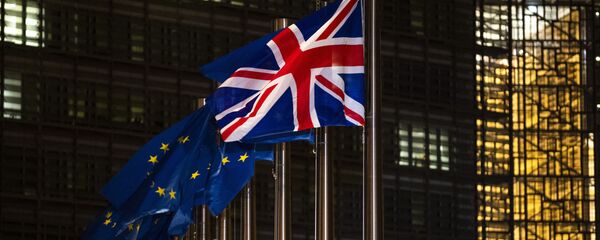The British government rejected an offer from Brussels to grant the country's musicians visa-free travel in the European Union, The Independent reported, citing a source from the European Union close to the Brexit negotiations. According to the source, UK authorities rejected a standard proposal to exempt musicians from Britain and the European Union from visas, allowing them to travel freely for 90 days.
"It is usually in our agreements with third countries, that [work] visas are not required for musicians. We tried to include it, but the UK said no", the EU source close to the negotiations said.
The Independent writes that Britain rejected the offer because it didn't fit its new immigration rules. The newspaper stated that London suggested granting visa-free travel to performers for 30 days though.
The government previously blamed the European Union for failing to reach a compromise on the issue. Authorities in Britain said they "pushed for a more ambitious agreement which would have covered musicians and others", but their proposals "were rejected by the EU".
The source close to the negotiations told The Independent that was not the case.
"The UK refused to agree because they said they were ending freedom of movement. It is untrue to say they asked for something more ambitious", the source said.
The Independent's report sparked outrage, with Labour shadow culture minister Alison McGovern saying that it if confirmed British music fans will "not forgive" the government.
Deborah Annetts, the head of the Incorporated Society of Musicians, Britain's professional body for musicians, said she was horrified by the news that UK authorities rejected an offer from Brussels.
"The government must come clean about what steps it took to protect the performing arts in the negotiations. The music sector feels deeply let down by the government and we want to get to the bottom of what happened. All the way through 2020, we were given assurances that the government understood how important frictionless travel is for the performing arts", said Deborah Annetts.
Why is it important?
The United Kingdom fully left the European Union on 1 January 2021. From now on, anyone willing to perform in Britain will need to apply for a visa, which costs 244 pounds ($331) and provide proof that they have almost 1,000 pounds ($1,356) in savings and can support themselves. For A-list performers, whose shows are sold out in days, the new rules are not really a big deal, but for smaller acts this is nothing short of a tragedy due to the increased costs they will have to pay for each band member as well as the support team. The changes come at a difficult time for the music industry, which has been devastated by the coronavirus pandemic.
Prior to Brexit, musicians, actors, and other artists warned that touring Britain and Europe would only be possible for A-list stars. Failure to reach agreement on the issue has already sparked concerns that future tours will have to be abandoned.
Last year, the head of the Incorporated Society of Musicians said Britain would shoot itself in the foot if it fails to reach an agreement with Brussels on the arts industry, which brings in $150 billion to the economy annually.



